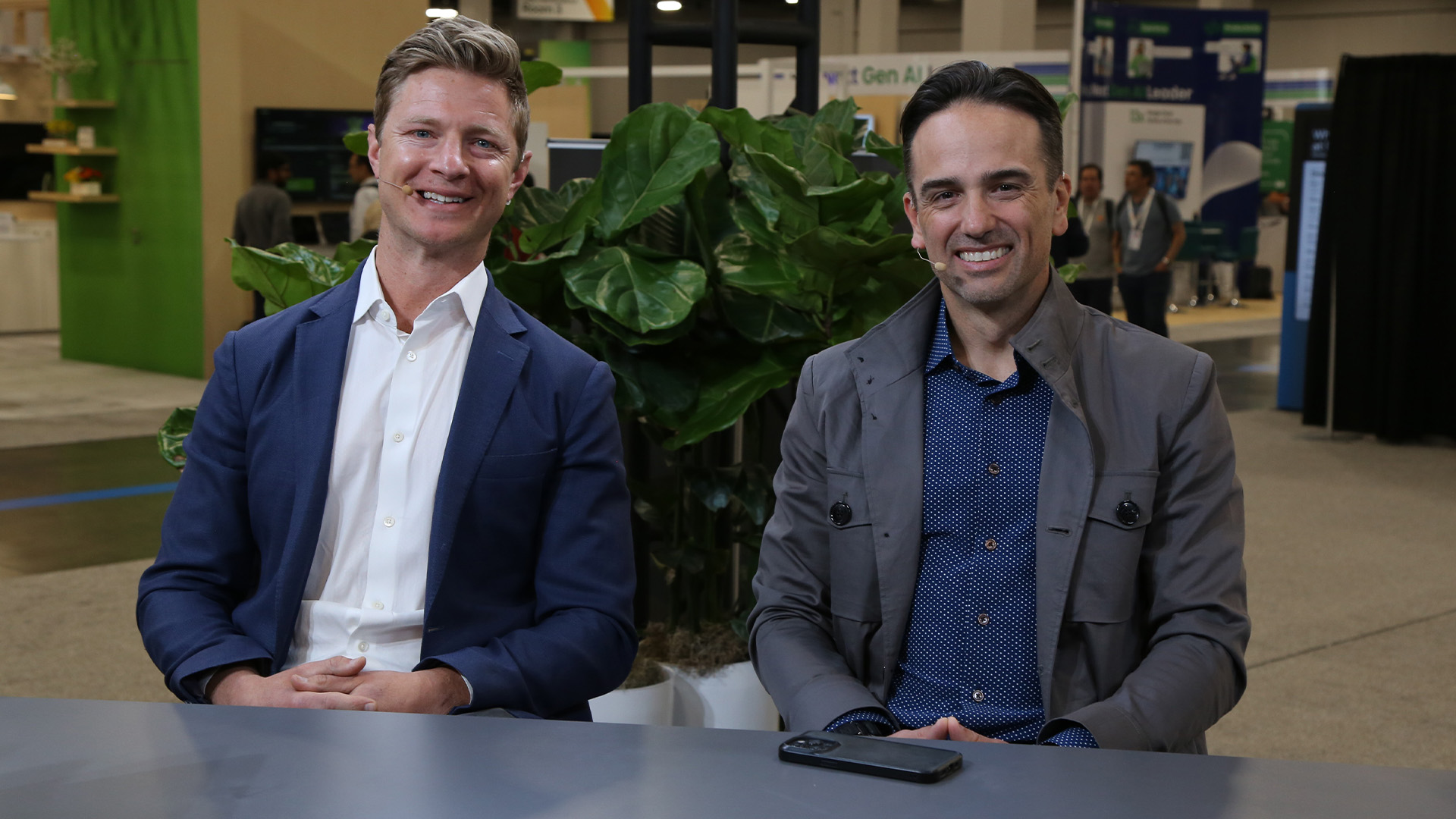 BIG DATA
BIG DATA
 BIG DATA
BIG DATA
 BIG DATA
BIG DATA
Integrating tax and sustainability with advanced data management tools is transforming traditional business practices into strategic front-office functions.
Leveraging data is critical, especially in the current highly regulated environment. PricewaterhouseCoopers International Ltd. is addressing this need by providing sophisticated data management tools to maximize business ROI, according to Justin Femmer (pictured, left), data automation and governance leader at PwC US.
“Most companies’ tax functions and sustainability functions are looking to become more strategic,” Femmer said. “They don’t just want to be a back office. They want to move to the front office, so to speak. They want to be involved in decision-making. Companies are looking for more sophistication, which has brought us here because we need more sophisticated data management tools and analytics to be able to move from back office more efficiently and into the front office.”
Femmer and Dallas Dolen (right), principal at PwC US, spoke with theCUBE analysts Savannah Peterson and Rob Strechay at Google Cloud Next 2024, during an exclusive broadcast on theCUBE, SiliconANGLE Media’s livestreaming studio. They discussedhow PwC looks at the other side of the taxation through sophisticated data management tools for enhanced business value, as well as the way Google Cloud fits into the picture. (* Disclosure below.)
Being tax compliant is emerging as a notable challenge because of the ever-changing tax reporting environment. As a result, PwC has partnered with Google Cloud to create a Connected Tax Compliance framework to tame this challenge through large data modernization programs, according to Dolen.
“From an API point of view, we’re actually able to use these tool sets we develop like the tax control center through our Connected Tax Compliance platform,” he said. “We’re able to go in and actually say, ‘I don’t care necessarily where it is right now.’ Let’s point that data into one control plane where we can actually summarize everything that’s going on and give the users data sets that they can actually go take and not only do reporting if they want to do it, but also do the internal stakeholder management.”
By using Google Cloud as the foundational model, PwC is able to realize the objective of having trusted data in tax and sustainability for better outcomes. As a result, this partnership streamlines data management and regulatory compliance since the same tool set is provided, Dolen pointed out.
“That you can do something within a couple of days to actually take a bunch of different data sets, pull them together, have them immediately accessible even to like the CFO level where they can look at summarized information that is actually meaningful,” he said. “Synergies take place between PwC and Google and building some of the technology we have in the market now, like, we’re able to show them almost instantaneously, joking aside on extensions. The cool part with Google Cloud, we’ve done some of the things on ERM, but on the reporting side, that’s where we’re really excited.”
Since it boils down to data when it comes to tax and sustainability, having timely, accessible, validated, consistent and clearly defined data is of the essence. As a result, data comes in handy when separating the signal from the noise because tax should not just be a back-office feature, Femmer pointed out.
“I think people have come to realize that these cloud-based ERP programs have largely been about business simplification,” he said. “The back-office functions like tax and sustainability have sort of been penalized in a way because in the effort to simplify the business, a lot of the custom analytics and data and processes that were built in are actually maybe shrinking. Let’s take the data as it is, as imperfect as it is structured, unstructured, invoices, feeds from ERP, feeds from vendors and outside parties, and let’s start to make some sense out of all the noise.”
Here’s the complete video interview, part of SiliconANGLE’s and theCUBE Research’s coverage of Google Cloud Next 2024:
(* Disclosure: PricewaterhouseCoopers International Ltd. sponsored this segment of theCUBE. Neither PwC nor other sponsors have editorial control over content on theCUBE or SiliconANGLE.)
Support our mission to keep content open and free by engaging with theCUBE community. Join theCUBE’s Alumni Trust Network, where technology leaders connect, share intelligence and create opportunities.
Founded by tech visionaries John Furrier and Dave Vellante, SiliconANGLE Media has built a dynamic ecosystem of industry-leading digital media brands that reach 15+ million elite tech professionals. Our new proprietary theCUBE AI Video Cloud is breaking ground in audience interaction, leveraging theCUBEai.com neural network to help technology companies make data-driven decisions and stay at the forefront of industry conversations.